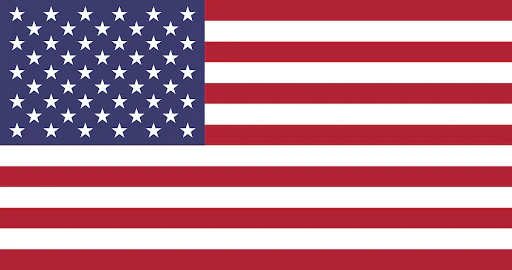Diet Tips for Lung Cancer
Either the lung cancer itself or its treatment cost you much energy and effort of your immune system. Therefore, although there isn’t any food to treat lung cancer, eating a well-balanced diet that is rich in nutrients is important for you to maintain strength and energy levels during the treatment. Here are some examples of foods that may be beneficial for people with lung cancer:
The biggest difficulty for people with lung cancer to have a healthy diet is the reduced appetite due to lung cancer and its treatments, especially Chemotherapy, which can change the taste of food to you and cause severe mouth soreness so that you don’t want to eat anything. This should be taken into consideration when we make a diet for cancer instead of focusing only on nutrition, and you might also need to change your way of eating to bypass this problem. This article will give you some guidance on how to decide on a diet that suits you. And it is always recommended to work with your doctor or healthcare provider for an ideal diet that can improve your health conditions.
Principle of a good diet for cancer
People with lung cancer may be undergoing different stages, different treatments, and different symptoms. The best diet for you is the diet that suits your current condition. That condition usually includes:
- The stage of cancer and the symptoms you have
- Your treatment plan and the side effects you are experiencing
- Your weight
- Other health conditions that are not caused by cancer, like heart disease.
You should also understand that a lung cancer diet aims to prevent sudden weight loss and keep it at an acceptable figure by providing enough calories.
Provide nutrients that are essential to your body, including vitamins, protein, minerals, carbohydrates, and healthy fats help alleviate your symptoms and side effects of the treatment.
For nutrition
Fruits and vegetables: These are a good source of vitamins, minerals, and antioxidants, which can help to boost the immune system and protect cells from damage. Some particularly nutrient-dense options include berries, leafy greens, and cruciferous vegetables like broccoli and cauliflower.
Lean proteins: Muscle loss is common for people with cancer. Foods like fish, chicken, turkey and tofu are good sources of protein, which is important for maintaining muscle mass and healing of the cells during the treatment.
Whole grains: Whole grains like quinoa, brown rice, and oats are good sources of fiber, which can help to keep the digestive system healthy. Studies show that people who eat more whole grains are exposed to lower risks of lung cancer.
Healthy fats: Foods like nuts, seeds, avocados, and fatty fish like salmon are good sources of healthy fats, which can help to support heart health and brain function. They also prevent weight loss and keep you energized.
Hydration: Drinking plenty of water, herbal tea, and other fluids is essential for maintaining hydration.
For side effects
As we have talked about previously, the side effects of treatment can have a massive influence on what you eat and how you eat. Treatments like chemotherapy use medicines that are strong enough not only to kill cancer cells but also your normal cells, resulting in various problems with your body functions including:
- Nausea and vomiting
- Diarrhea
- Loss of appetite
- Mouth sores
These problems can be alleviated or aggravated by a certain type of food. The followings are some food and tips you should try for the corresponding problems it solves:
Nausea
- Eat foods that are blander, with less flavoring and oil, like toast or rice.
- Eat more frequently with smaller serving each time. Don’t eat too much for one meal.
- Eating food of lower temperature can reduce nausea. Try to eat foods at room temperature or foods that don’t need to be heated.
Diarrhea
- The first thing you should do after diarrhea is to replenish the sodium lost. Salty foods are good choices.
- You also need to replenish water loss. Drink a lot of water or sports beverages.
- Bland is also good for diarrhea since they are easier to digest.
- Don’t take in anything high in fat, including greasy foods and milk.
Reduced appetite
- Nausea can be a major cause of appetite loss. Therefore, the solution of eating more frequently with fewer servings also applies here. Make it a habit so that it feels like a compelling obligation instead of eating.
- Eat foods that are higher in calories, like butter, nuts, and eggs, so that you can take in enough calories with less eaten.
- If you don’t feel like eating anything, try drinking. Nutritional supplements like vitamin drinks or protein shakes can at least satisfy your basic needs although they can’t replace actual food.
Mouth sores
- Eating soft or fluid foods like porridge and oatmeal can reduce irritation.
- Keep away from spicy, salty, and acidic foods and fruits. They are all irritating and can cause extreme pain.
- Medication is also effective for mouth pain but confirm with your doctor whether you can or need to take it.
Foods that aggravate the symptoms
Alcohol is not recommended to anyone and should be strictly forbidden among patients. Alcohol can interact with the drugs you take, and it may also aggravate the symptom and increase the risk of developing certain cancers.
Highly processed foods
Highly processed foods usually contain much more chemicals, which can increase the risk of developing cancer if accumulated. This kind of food is of no good to your health.
These are some general ideas you can take for your diet. Everyone's nutritional needs are different, so it's always a good idea to speak with a registered dietitian or a healthcare professional to ensure that your diet is tailored to your specific needs and treatment plan. You should also make timely adjustments to your diet as your condition changes.















Leave a comment